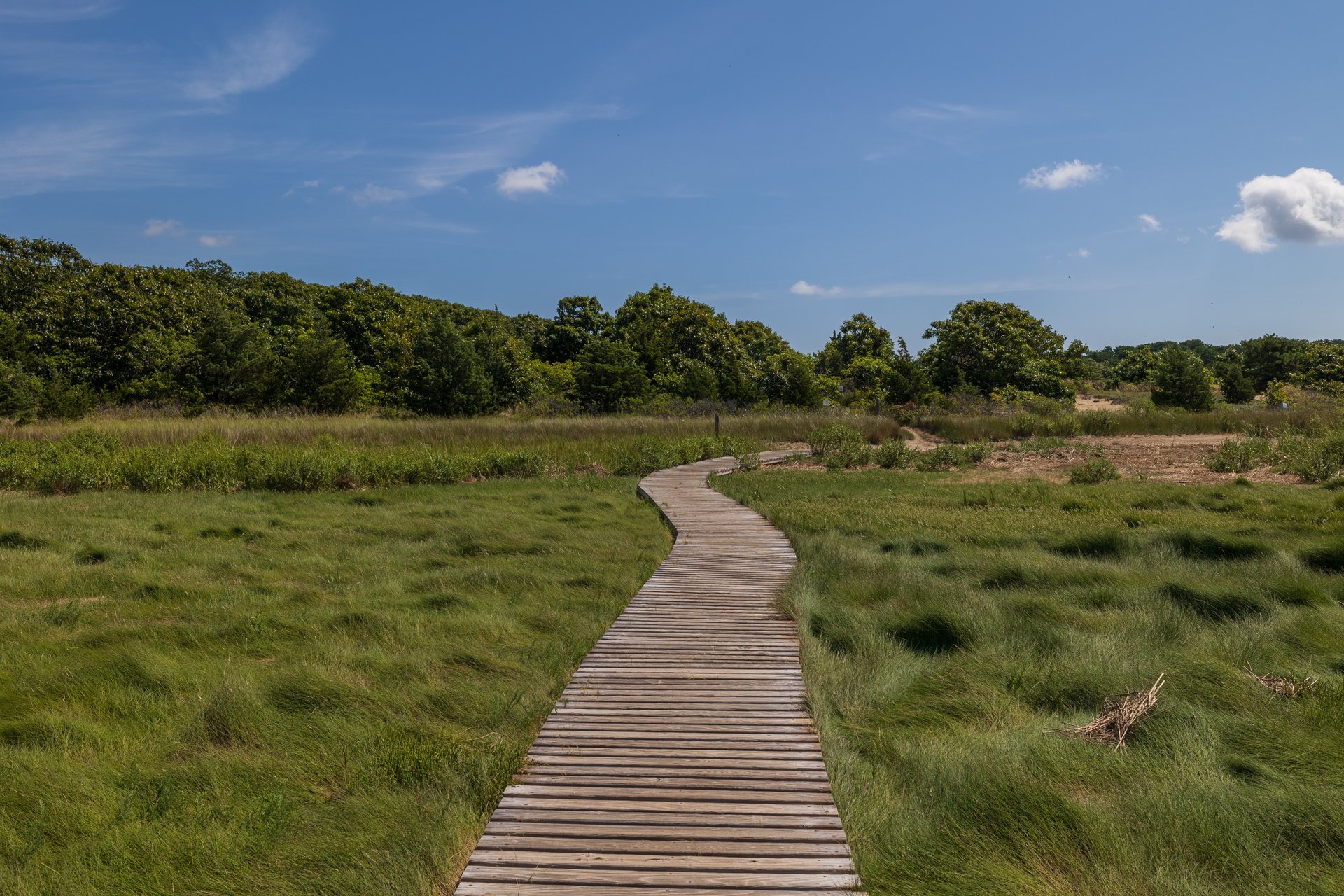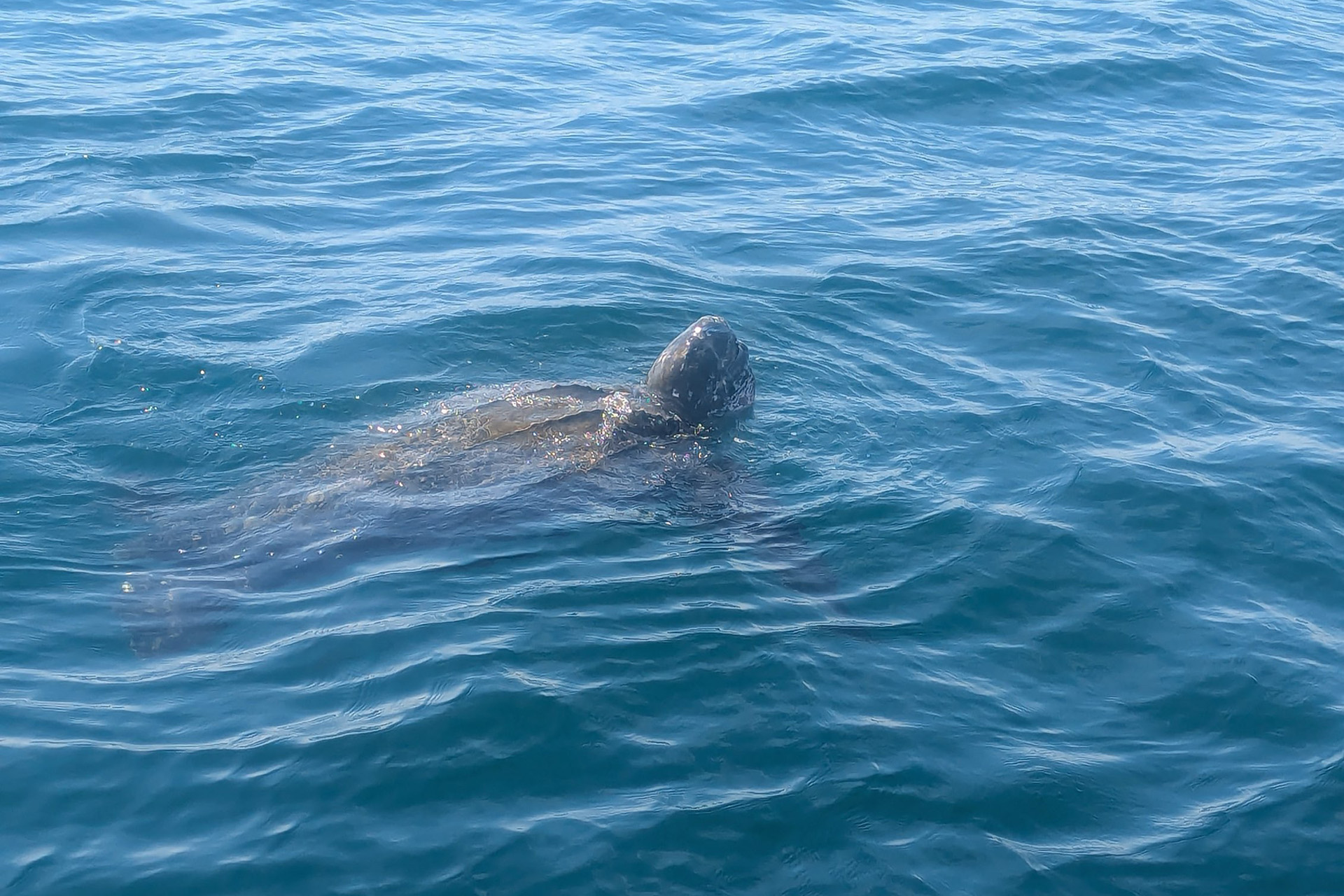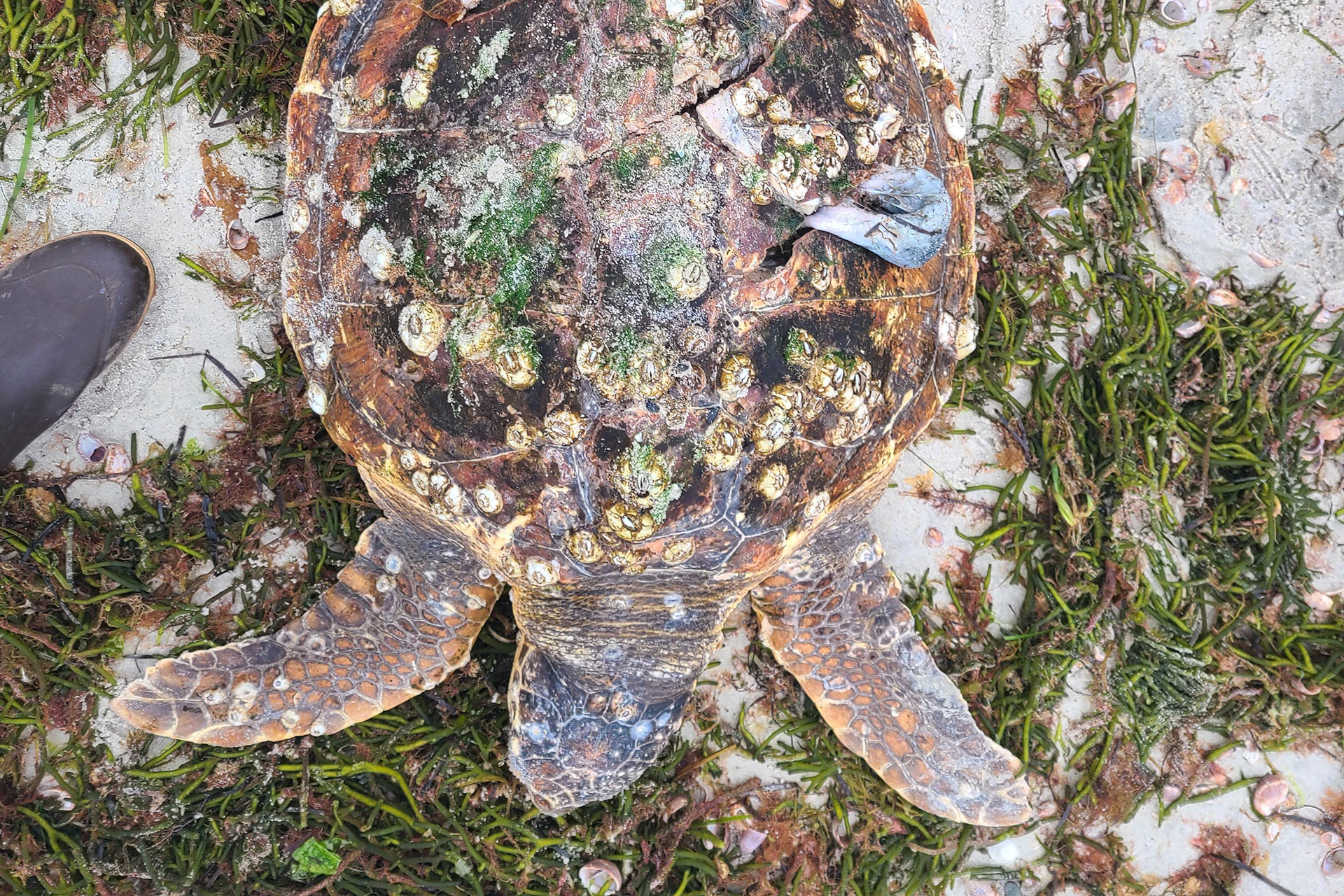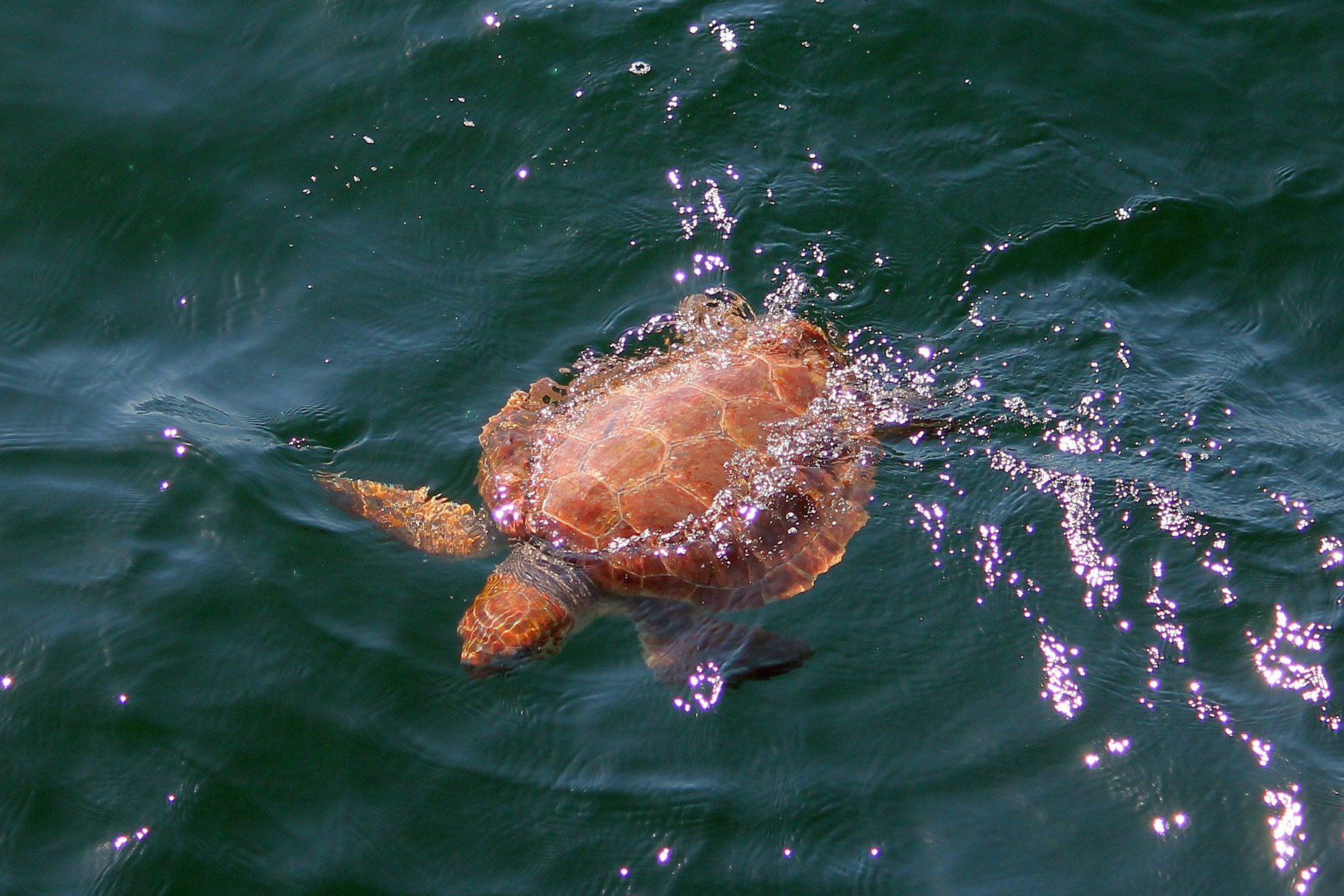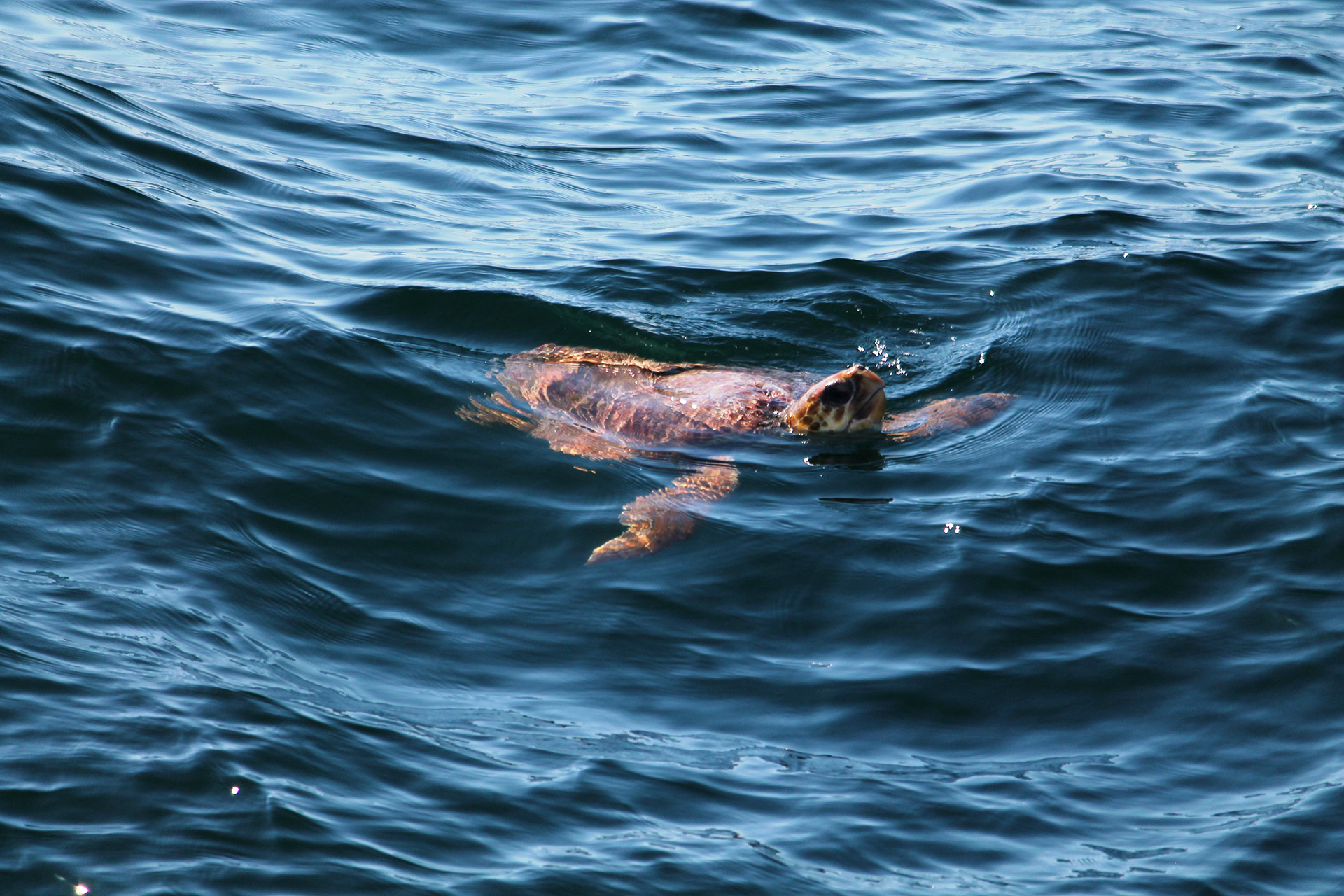Mass Audubon is asking boaters to use extreme caution when on the water after fifteen dead sea turtles were found on beaches or off the coast of Cape Cod and the islands, marking an unusually grim start to the summer sea turtle feeding season.
Mass Audubon Urges Boaters to Protect Sea Turtles
We’ve experienced an unusually high number of Loggerhead Sea Turtle strandings this summer. In the seven weeks between June 17 and August 5, a total of fifteen deceased Loggerheads were found on beaches or floating in local waters. At least seven died from fatal vessel-strike wounds, but staff and authorized volunteers from Mass Audubon’s Sea Turtle Rescue and Research Program who responded to these strandings found no apparent cause of death for the others.
Karen Dourdeville, Sea Turtle Research Coordinator, reports, “Sea turtles are reptiles and need to breathe air. In the summer and early fall, when we find a deceased sea turtle with no wounds from a vessel strike, it’s most likely that the turtle had been trapped in some kind of fishing gear and drowned.”
Over the past five years the total number of Loggerhead strandings over the course of the entire 12-week summer season has ranged between 7 to 16 loggerheads; thus 15 in the first half of the season is alarming. As a result, Mass Audubon is reminding boaters to take extra care to watch ahead of their vessels to avoid striking these federally protected species, and to report summer sightings to our hotline.
Sea Turtles in Massachusetts
We share the marine waters around the Cape and islands with four species of sea turtles who come here to feed in this nutrient-rich region during the summer and early fall: Leatherbacks, Loggerheads, Kemp’s ridleys and Greens. All four are protected and listed as either "Threatened" or "Endangered" under both the U.S. Endangered Species Act and the Massachusetts Endangered Species Act.
We don’t know why there is an increased number of strandings this year, but we know that climate change is altering the range of many marine animals, including sea turtles, bringing more of them farther north. The waters off the Cape and Islands provide good feeding grounds for sea turtles. These waters, however, are heavily boat-trafficked, making sea turtles present very vulnerable to fatal vessel strikes.
Seeing and Saving Sea Turtles
It’s not easy to see a sea turtle while boating so extra care and attention is required. Loggerheads, coming to the surface to catch a breath or bask at the surface, can resemble a small patch of brown marine algae. “We saw what first looked like a clump of seaweed, but we slowed down to check it out,” described Kate D. who was out boating in Buzzards Bay earlier this summer. “We were so surprised to see a head rise up and to realize we were seeing a Loggerhead sea turtle!”
Kate reported the sighting to Mass Audubon’s hotline for boaters, seaturtlesightings.org. Working under a U.S. Fish and Wildlife Service permit, Mass Audubon staff on Cape Cod maintain this sightings website and database, as well as conduct year-round sea turtle rescue, research, stranding response, public outreach and education.
You Can Help Protect Sea Turtles
So, boaters: enjoy your time on the waters, but please watch ahead of your vessel, report sea turtle sightings, and remember that we all can help to protect sea turtles.



